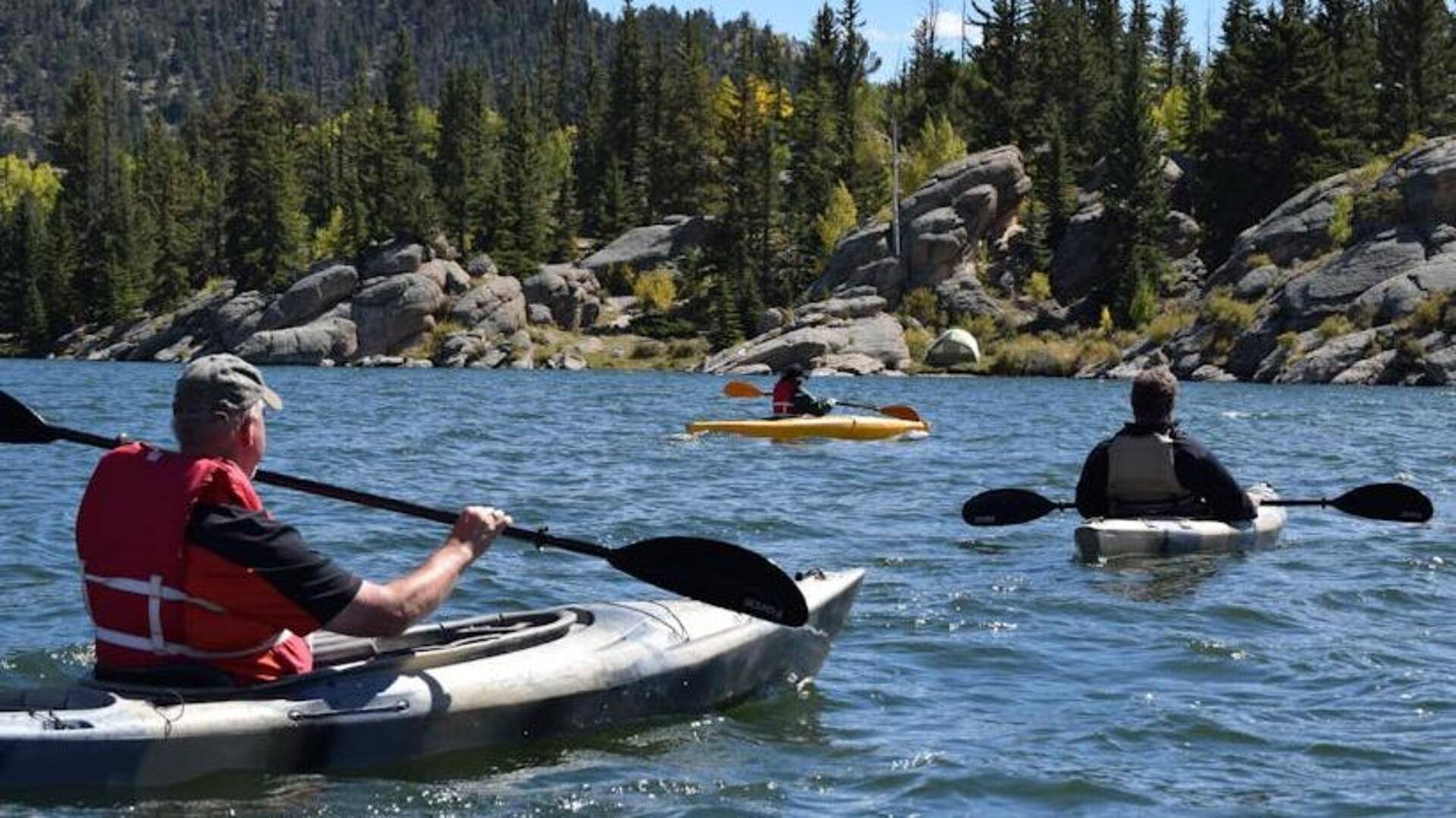
Essential etiquette for canoe and kayak excursions
What's the story
Joining canoe and kayak trips is a great way to discover natural waterways, but it's important to know the right etiquette to keep things safe and fun for everyone.
This article provides a comprehensive guide to the key etiquette that participants should follow, from getting ready for the trip to socializing with other paddlers and taking care of the environment.
Preparation
Prepare and pack wisely
Before you embark on a canoe or kayak adventure, it's important to plan ahead.
This includes checking the weather forecast, letting someone know where you're going and when you'll return, and bringing essentials like water, snacks, sunscreen, a first aid kit, and suitable clothing.
Keep in mind that conditions can change quickly on the water, so being prepared is crucial for a safe and enjoyable experience.
Courtesy
Respect others' space on the water
During busy times, waterways can become congested. It's important to show courtesy to fellow paddlers by maintaining a safe distance between vessels.
Overtake on the left side, indicating your intention with a shout or hand signals.
Refrain from congregating in areas that may obstruct others from passing or entering launch points.
Environment
Leave no trace behind
Keeping our waterways beautiful is important.
Adhere to "Leave No Trace" principles by carrying out any trash or litter you bring in after your trip.
Maintain a respectful distance from wildlife and their homes.
If you stop for a rest or picnic along shorelines or islands, make sure to leave the area as pristine as you found it.
Compliance
Follow local rules and regulations
Different regions have specific laws and regulations pertaining to canoeing and kayaking activities.
These may include prohibited areas for launching or landing your boat, speed limitations within specific zones, and mandatory requirements for wearing life jackets at all times while on the water.
Ensure that you acquaint yourself with these rules and regulations before setting out on your trip to prevent incurring fines or endangering yourself and others.
Communication
Communicate effectively with fellow paddlers
Effective communication is crucial during group outings to keep everyone together, address concerns, and ensure a positive experience for all.
Use distinct signals or loud verbal commands when directing others through challenging sections of waterways or when coordinating breaks for rest or meals.
Being a good listener is equally important. Pay attention to guides or more experienced paddlers to stay safe and have fun.